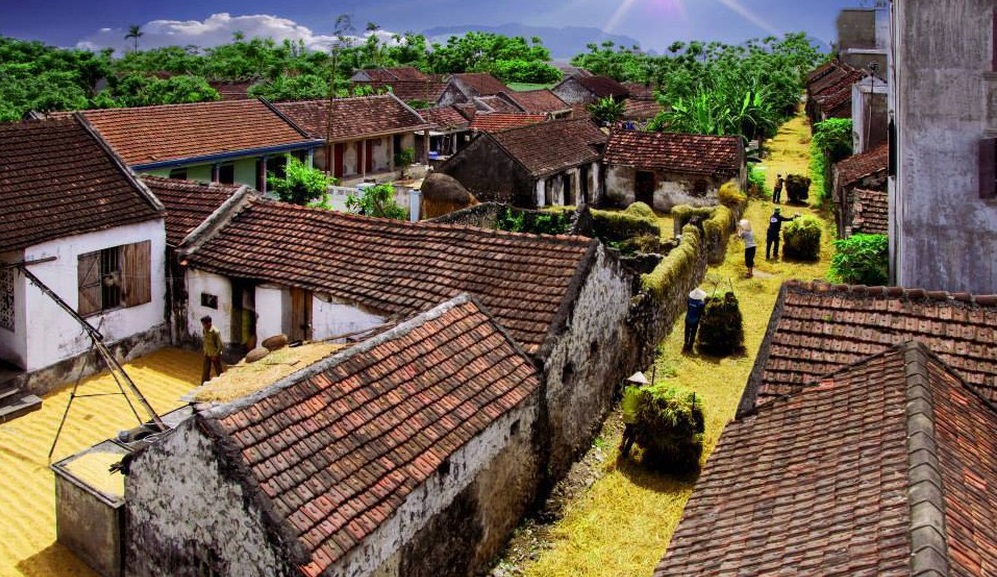
I started living in Vietnam last September. Here, I'm studying Vietnamese. This is part of my master's program in modern Southeast Asian studies. I came to Vietnam because I wanted to learn Vietnamese. Before coming, I studied Vietnamese at Humboldt University in Berlin, Germany for a year.
I want to learn Vietnamese because my boyfriend is of Vietnamese descent. His name is Minh. His mother is from Ha Tay and his father is from Thai Binh. Every weekend I visit his family. His aunt sells tofu at the market and I can talk to the customers. It's funny because they often ask: what does a Western woman do at the market? I'm learning Vietnamese because of my boyfriend. Because family is very important to me, I want to be able to talk to his relatives. Of course, his parents speak German. I hope I will speak Vietnamese better than they speak German. Ideally, one day I will be able to speak Vietnamese so well that I understand everything my boyfriend says to our children. Right now we don't have children and we're not married. But if we do have children, I want to teach them both languages. Children should learn to speak both Vietnamese and German. These are the reasons why I'm learning Vietnamese.
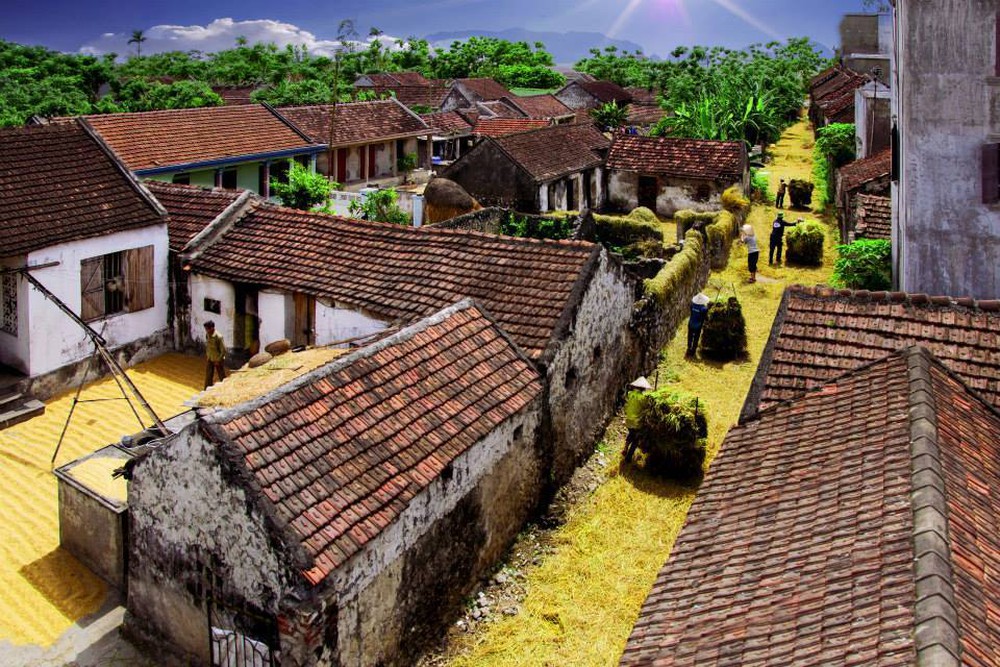
Minh's family is very kind to me, and I'm happy to visit them weekly or monthly. Especially a little girl named Tuyet is very happy when I come. She calls me by my name, Ms. Le, and runs into my arms. I enjoy playing with her and also help teach her. Minh's cousin and I cook for the whole family together. I've learned to cook many Vietnamese dishes. I can cook salads, soups, spring rolls, tofu, eggs, and vegetables. I really like Vietnamese food. However, I don't eat meat. I'm so happy that my friend's family always cooks vegetarian food for me. The food is delicious!
At the beginning of September, I found it difficult that only women worked in the kitchen while the men drank tea or watched TV. But then I got used to it. In Vietnam, there's a clear separation between men and women compared to Germany. I can adapt well and behave like a Vietnamese woman. If possible, I would also invite men to help in the kitchen. But that doesn't happen in Thai Binh. It's very traditional there. In my boyfriend's mother's family, men can also cook a little and help in the kitchen. Especially during large family gatherings, most men help out. That's different in Thai Binh. Only the boys help in the family. But the older uncles just give orders. I prefer Ha Tay. There's a rule that the youngest person in the house has to prepare the meals. And if the youngest is a boy, he'll do it without any problem. I think that's good! Men and women should always take turns; no one should have to do more than the other. Gender equality is very important to me. I enjoy helping because I find it easier to do tasks directly than to speak Vietnamese. I can help even if I don't understand everything. While cooking, I can learn and observe at the same time.
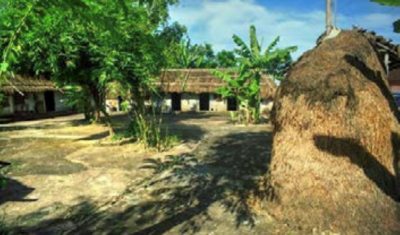
Being accepted into Minh's family gave me a deeper insight into Vietnamese culture than most international students. In Ha Tay, I attended many memorial services, weddings, and village festivals, and also became acquainted with everyday aspects of Vietnamese culture. I am very grateful for that. I went to the market and helped harvest rice, I swept the yard or did the laundry. These are normal things, but very different from what I experience in Germany.
I also visited my boyfriend's family during Tet (Vietnamese New Year). First, I went to Thai Binh and then to Ha Tay. I liked the atmosphere at my maternal family more than my paternal family. Because Ha Tay is closer to Hanoi, I could visit my boyfriend's mother's family more often. Of course, I understand that I'm very good to them. But there's another reason why I prefer my maternal family. The two families are very different. Because the family in Thai Binh is a bit more educated than the family in Ha Tay. Perhaps educated people tend to be more anxious. When I was in Thai Binh, I felt the family was afraid that I wouldn't understand them. That's why no one talked to me, and when I tried to talk to them, I spoke very slowly. This wasn't a problem in Ha Tay because people just laughed when we didn't understand each other and we tried again. Especially one aunt there understood me very well. Aunt Thu is the tofu vendor. With her, I always sat in the market for a long time, and I had time to speak slowly. She quickly learned to understand my broken Vietnamese. I'm happy every time I visit her and her family. If I have to say goodbye and go back to Germany, I'll cry.
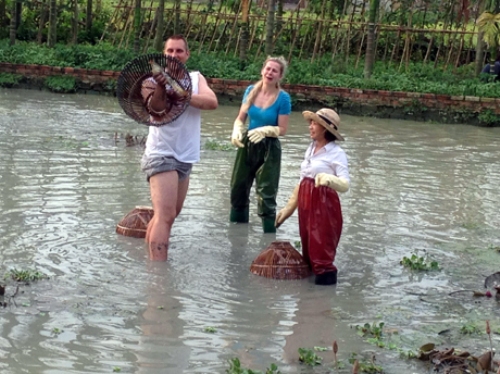
In September, I lived in Ha Tay for three weeks at a time. Because my birthday was in September, my boyfriend's family and I celebrated together. All the children came and sang for me. I didn't know everyone had prepared a birthday party for me, and I cried with joy. September was a long time ago. It's sad how quickly time flies. Now I only have about two months left in Vietnam. But I will come back many more times. I could also live longer in Vietnam, for example, when I have children. I love Vietnam, its people, its language, and its culture. But one thing bothers me: the lack of environmental protection. I've seen so much pollution. And that makes me very sad. A Vietnamese friend of mine said that Vietnamese people are very selfish, and would rather throw things away than properly dispose of trash because it costs money. People only think about themselves, not the environment. But in a few years, everyone will be affected. But I think there are other problems besides garbage. Every day I read in the newspaper about water, air, or sea pollution, which is very sad because Vietnam's nature is so beautiful. That's why I don't eat meat. Because you can survive very well without meat. There is a lot of protein from plant products. And animals cause more garbage and more water pollution. Besides, it consumes a lot of water until an animal becomes meat. But that's just an individual solution. Actually, the Vietnamese government will have to ban and punish more. In Germany, there is still much room for improvement, and people understand how important environmental protection is. I think Vietnam has the potential to become a very sustainable country. Vietnam can become a model for other countries. There are many natural energy sources like wind, solar, or water. It would be great if Vietnam used this potential and became a model country for ecotourism. In Vietnam, I see garbage everywhere. That's why there are so many rats and cockroaches. Most of the garbage just burns or gets buried in large landfills. This is very bad for the environment. The gases produced pollute the air, and toxins from the garbage in the secret area also seep into the surrounding land and drinking water. Anyway, there are many problems with water in Vietnam. I wonder how the woman I saw in Thai Binh could just pour a bucket of chemical paint into the stream in front of her house, even though it was completely black and terribly foul-smelling. Didn't she understand what she was doing? Wasn't she stupid? Or was she just lazy? Or is there no proper facility for it in Vietnam? Politicians must do something so that future generations can still live here! Things like this can't continue. I'm so happy to be flying back to a clean Germany!
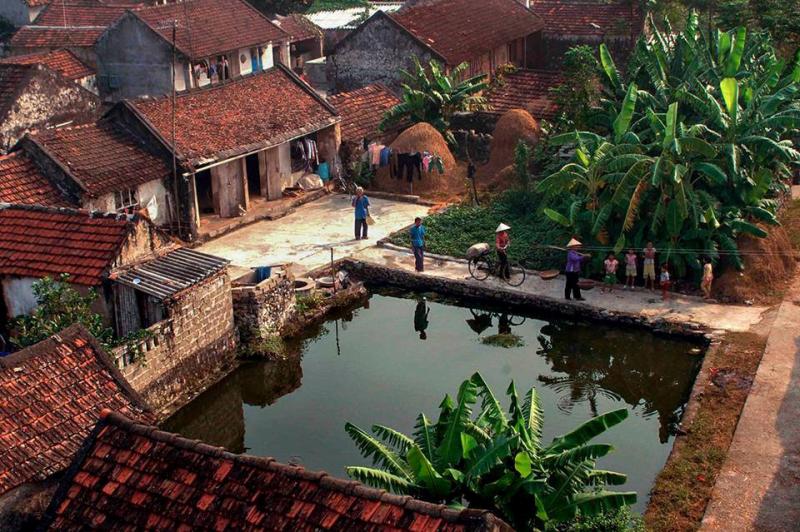
But climate change affects us all. So you also have to think about what you can do for the sustainable development of our lives. Maybe you could buy a water bottle that you refill many times instead of buying a new one every time you feel thirsty. Maybe you could bring a reusable container when you buy food. Maybe you could ride a bike or walk instead of cycling every 500 meters. Maybe you prefer traveling to Vietnam by train instead of flying. Maybe you bring a reusable cloth bag that you can wash when you go to the market. Maybe you will separate your trash and help the earth get rid of natural waste. Maybe you are buying a little less, or putting food in the refrigerator instead of throwing it away. Maybe you stop printing everything and prefer using your laptop or phone when reading documents. These are just small things, but we can do them as long as the policies don't cause any negative consequences from climate change.
We have to change things, otherwise this world will no longer be beautiful for us and our children.
Author:Leonie Elisha (German student)
Newer news
Older news